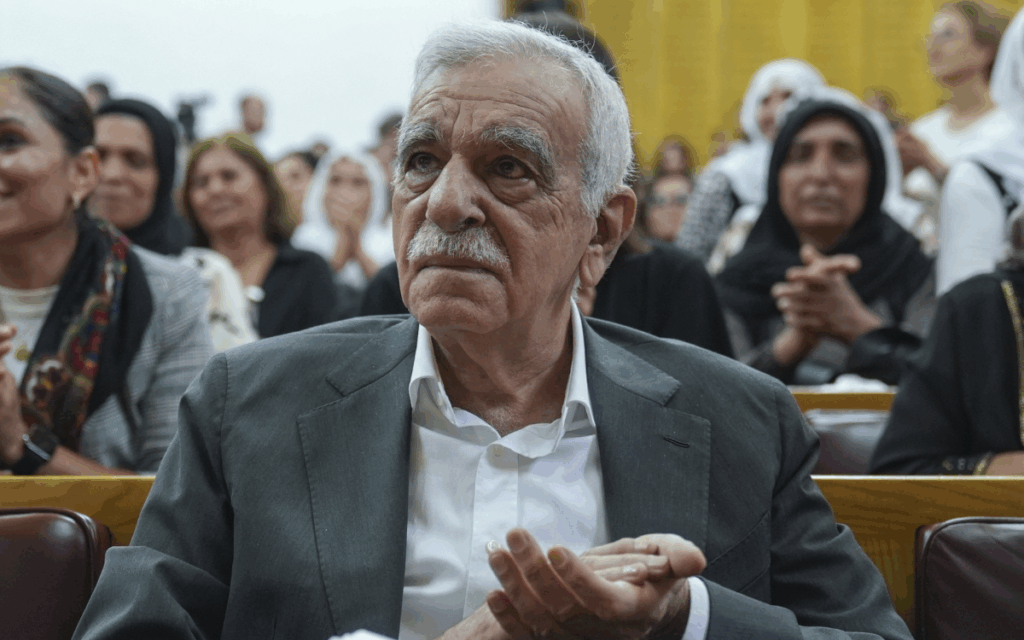In a significant legal victory, veteran Kurdish politician Ahmet Türk has been acquitted of charges that had previously led to his removal from office as mayor of Mardin. The trial, centered on accusations of making propaganda for a terrorist organization, culminated in a ruling that affirmed Türk’s right to freedom of expression. This case not only highlights the ongoing tensions surrounding Kurdish politics in Turkey but also raises questions about the government’s use of trustee policies against elected officials.
| Article Subheadings |
|---|
| 1) Overview of the Acquittal |
| 2) Background of the Case |
| 3) Legal Arguments and Court Proceedings |
| 4) Implications for Kurdish Politics |
| 5) Future Perspectives on Trustee Policies |
Overview of the Acquittal
The recent acquittal of Ahmet Türk marks a pivotal moment within the political landscape of Turkey, particularly in the context of Kurdish governance. Initially suspended from his role as mayor of Mardin, Türkiye by the Interior Ministry due to allegations of propagandizing for a terrorist organization, Türk faced grave legal repercussions. However, the Ankara 14th Heavy Penal Court deemed that his statements were protected under the umbrella of freedom of expression, ultimately resulting in his exoneration. The ruling not only reinstates Türk’s political career but also serves as a beacon for other Kurdish politicians facing similar challenges.
Background of the Case
The basis of the legal proceedings against Türk stems from a speech he delivered in 2011, where he addressed the tragic phenomenon of extrajudicial killings during the tumultuous conflicts of the 1990s in Turkey. Initially, the Interior Ministry cited this speech as justification for his removal from office in November 2022, leading to extensive scrutiny from various factions within the government. The indictment that followed surfaced years later, in 2022, alleging that his comments constituted “terrorist propaganda.” This development underscores the continued tension surrounding Kurdish political figures and the legal avenues employed by the state to undermine their authority.
Legal Arguments and Court Proceedings
During the final hearing of the case, Türk appeared before the court while his attorneys, Erdal Kuzu and Tahar Erdem, participated via video link from the Mardin Courthouse. The prosecution called for a conviction, asserting the necessity of upholding national security. In contrast, defense attorney Kuzu vehemently challenged this assertion, arguing that the evidence presented was insufficient and inconsistent with previous non-prosecution decisions made by the Chief Public Prosecutor’s Office in Siirt in 2014 regarding the same speech. The court, after careful deliberation, ruled in favor of Türk, stating that the alleged elements of the crime could not be substantiated, reaffirming the importance of free expression in political discourse.
Implications for Kurdish Politics
The acquittal of Türk carries significant implications for the Kurdish political movement in Turkey, particularly in light of the government’s recent trend of removing elected officials under terrorism-related charges. Since the 2024 local elections, trust policies have seen the government appoint trustees to six metropolitan municipalities won by the pro-Kurdish Peoples’ Equality and Democracy (DEM) Party, citing legal issues with elected mayors as justification. This pattern has fueled broader debates on the ethics and legality of overriding local governance, showing a systemic approach to stifle opposition among Kurdish lawmakers.
Future Perspectives on Trustee Policies
Despite the ongoing issues surrounding trustee policies, political dynamics may be poised for change. Recent statements by President Recep Tayyip Erdoğan suggested a reconsideration of the government’s approach, especially after the announcement from the outlawed Kurdistan Workers’ Party (PKK) regarding its dissolution. Furthermore, Devlet Bahçeli, leader of the Nationalist Movement Party (MHP) and Erdoğan’s ally, publicly advocated for the reinstatement of Ahmet Türk, which may signal a shift in the authorities’ stance toward Kurdish politicians. These evolving sentiments could open avenues for reconciliation and dialogue, although skepticism remains regarding the sustainability of such changes amid a historically adversarial political climate.
| No. | Key Points |
|---|---|
| 1 | Ahmet Türk has been acquitted of charges leading to his suspension from the mayoralty of Mardin. |
| 2 | The trial revolved around a speech given by Türk in 2011 that addressed historical conflicts. |
| 3 | The court ruled that Türk’s comments were protected by freedom of expression. |
| 4 | This case highlights the ongoing issues around state policies regarding Kurdish politicians. |
| 5 | There may be potential shifts in trustee policies and broader political dynamics moving forward. |
Summary
The acquittal of Ahmet Türk represents a pivotal moment for the Kurdish political landscape in Turkey, emphasizing the ongoing struggle for democratic rights amid state-imposed restrictions. This case not only revitalizes Türk’s political career but also raises crucial discussions regarding the government’s administrative practices affecting local governance. As the political climate evolves, the potential for change in trustee policies could pave the way for renewed dialogue and a progressive approach towards Kurdish representation within the broader fabric of Turkish society.
Frequently Asked Questions
Question: What charges were brought against Ahmet Türk?
Ahmet Türk was charged with “making propaganda for a terrorist organization” due to a speech he made in 2011 regarding extrajudicial killings during the historical conflicts in Turkey.
Question: What was the court’s ruling in Türk’s case?
The court ruled that Türk’s statements were protected by freedom of expression and acquitted him of all charges, concluding that the elements of the alleged crime had not been substantiated.
Question: How have trustee policies impacted Kurdish politicians?
Trustee policies have led to the removal of several elected Kurdish officials under terrorism-related charges, raising concerns regarding the undermining of democratic governance in regions with significant Kurdish representation.
